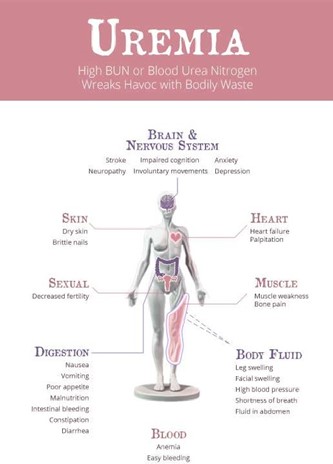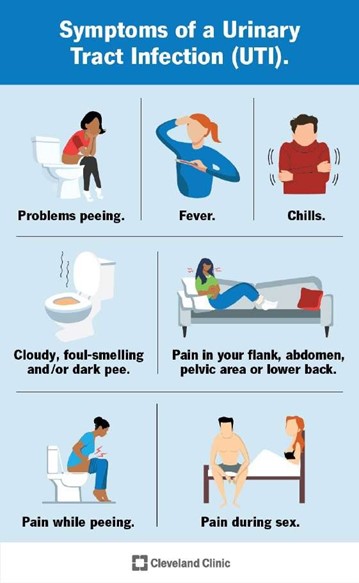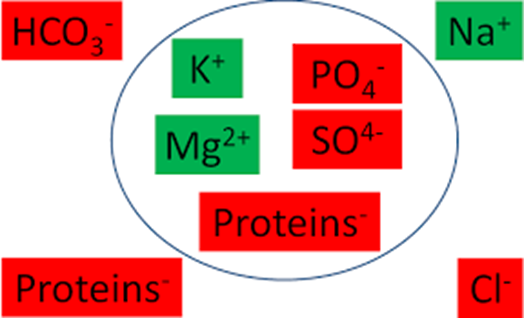What is the term for an excess of urea and other nitrogenous wastes in the blood as a result of kidney insufficiency?
Azotemia.
Uremia.
Anuria.
Oliguria.
The Correct Answer is B

Uremia is a condition where there is an excess of urea and other nitrogenous wastes in the blood, usually excreted by the kidneys into the urine. It occurs when the kidneys stop filtering toxins out through your urine and can be a sign of end-stage renal (kidney) disease.
Choice A is wrong because azotemia is the buildup of nitrogen waste products in the blood, not urea.
Choice C is wrong because anuria is the absence or reduction of urine output.
Choice D is wrong because oliguria is the low output of urine.
Nursing Test Bank
Naxlex Comprehensive Predictor Exams
Related Questions
Correct Answer is C
Explanation
Dysuria, which means pain or a burning sensation when peeing, is a common symptom of urinary tract infection (UTI).

UTIs are caused by bacteria entering the urinary tract through the urethra and spreading to the bladder or kidneys.
Choice A is wrong because nausea is not a specific symptom of UTI, although it may occur if the infection spreads to the kidneys.
Choice B is wrong because diarrhea is not a symptom of UTI, but rather a condition that affects the digestive system.
Choice D is wrong because constipation is also not a symptom of UTI, but a problem with bowel movements.
Normal ranges for urine tests vary depending on the type of test and the laboratory that performs it.
However, some general ranges are:
Specific gravity: 1.005 to 1.030
pH: 4.6 to 8.0
Protein: less than 150 mg/dL Glucose: less than 130 mg/dL Ketones: none
Blood: none Nitrites: none
Leukocyte esterase: none Bacteria: none or few
White blood cells: less than 5 per high-power field Red blood cells: less than 3 per high-power field Epithelial cells: few
Correct Answer is A
Explanation

Sodium is the major extracellular electrolyte in the body.
It is responsible for maintaining the extracellular fluid volume, and also for regulation of the membrane potential of cells.
Sodium is exchanged along with potassium across cell membranes as part of active transport.
Choice B is wrong because potassium is mainly an intracellular ion.
It is important for nerve and muscle function, but it is not the predominant electrolyte in the extracellular fluid.
Choice C is wrong because calcium is not the major electrolyte in the extracellular fluid.
Calcium is mostly found in bones and teeth, where it forms a mineral reserve with phosphate.
Calcium also plays a role in muscle contraction, blood clotting, and enzyme activity.
Choice D is wrong because magnesium is not the major electrolyte in the extracellular fluid.
Magnesium is mostly found in bones, where it helps to stabilize the structure of ATP2.
Magnesium also participates in enzyme reactions, nerve and muscle function, and protein synthesis.
Whether you are a student looking to ace your exams or a practicing nurse seeking to enhance your expertise , our nursing education contents will empower you with the confidence and competence to make a difference in the lives of patients and become a respected leader in the healthcare field.
Visit Naxlex, invest in your future and unlock endless possibilities with our unparalleled nursing education contents today
Report Wrong Answer on the Current Question
Do you disagree with the answer? If yes, what is your expected answer? Explain.
Kindly be descriptive with the issue you are facing.
